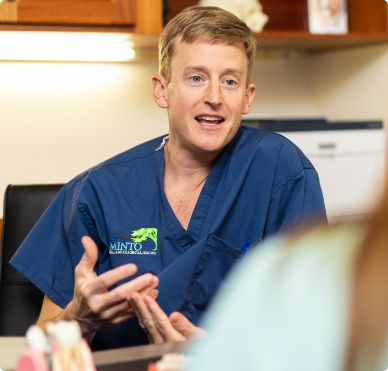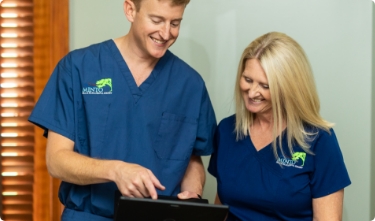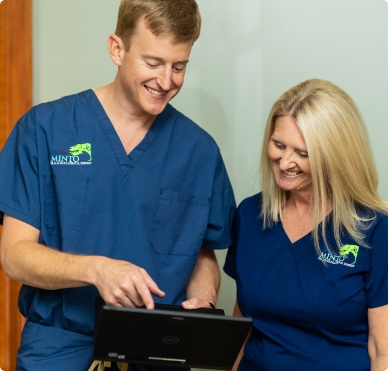Wisdom Teeth Removal: The Process
For those who are anticipating the need for wisdom teeth extraction, it is only natural to feel a bit apprehensive. One thing that may help is to learn a little bit more about what the procedure entails.

Consultation
Most patients are referred to us by their regular dentist, who can tell from X-rays and other dental imagery that the wisdom teeth need to go. In other cases, patients may make an appointment because they are in pain and suspect their back molars are to blame. Regardless, the process always begins with a consultation, where a physical examination and further imaging will help determine the best course of treatment. This will also be a good time to ask any questions you may have about the process.
Preparing for Wisdom Tooth Extraction
At Minto Oral and Maxillofacial Surgery, it is imperative to us that all of our patients have a positive and comfortable experience. In pursuit of this goal, we will talk with you about different sedation options that will ensure a pain-free procedure. Depending on your anxiety level, the number of wisdom teeth you are having removed, and how badly they are impacted, we may recommend either localized or IV sedation.
Removal
Once you are fully sedated, your oral surgeon will make a small incision, allowing access to the wisdom tooth. If there is any additional bone or tissue blocking access, this will be removed. Usually, the wisdom tooth is cut into smaller segments, making it easier to remove piece by piece. The area is then cleaned up before stitching and bandages are applied.
How Long Does Wisdom Tooth Extraction Take?
The timeline for wisdom teeth extraction may vary from one patient to the next, depending on the number of wisdom teeth, the complexity, and the type of sedation. Most of the time, a wisdom teeth extraction takes no more than 45 minutes to complete.
Will it Hurt?
Patients are naturally a little nervous at the thought of dental pain, but rest assured that comfort and safety are our top concerns. We will ensure the appropriate level of sedation to give you an easy and pain-free procedure. While you can anticipate some soreness following the procedure, this discomfort can easily be managed with pain medications.








 Meet Your Oral Surgeon
Meet Your Oral Surgeon





